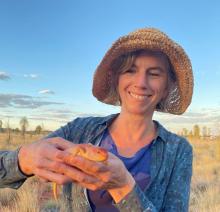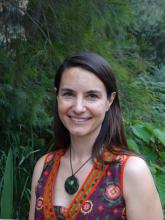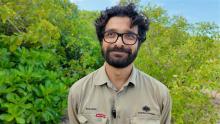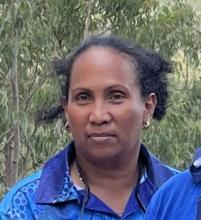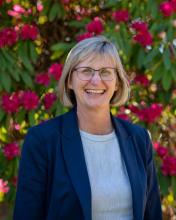As Australia recovers from its most significant avian disease incident in 50 years, attention has turned towards preparing for the next possible avian influenza outbreak - a more virulent strain that has caused deaths in poultry and wild birds and mammals across the globe.
The recent H7 high pathogenicity avian influenza (HPAI) outbreak in Victoria, New South Wales and the Australian Capital Territory has shown Australia's national response arrangements are effective in containing and eradicating the disease in poultry. With no new outbreaks of H7 HPAI since July 2024, Australia has successfully eradicated outbreaks 9 times since 1976.
HPAI can also pose a threat to human health. Health experts including those at the interim Australian Centre for Disease Control take a One Health approach to protecting Australians. One Health places human health within the world around us, including environment and agricultural health.
Australia the only continent currently free of the new strain, H5 HPAI. Vigilance will be key to monitoring and understanding the spread of H5 HPAI if it were to arrive on our shores.
There is a great deal of preparedness and response readiness work underway - and this builds on long standing surveillance and biosecurity planning arrangements.
Meet some of the people working to protect Australians, and Australia's wildlife, environment and agriculture.
Dr Brant Smith, ACT - Department of Agriculture, Fisheries and Forestry, National Animal Disease Preparedness Coordinator.
Dr Smith works with Australian industries, governments and the community to strengthen Australia's animal disease prevention, preparedness and response capabilities. A qualified vet, Dr Smith leads the department's uplift to prepare for a possible H5 HPAI detection in Australia.
"We are working across governments, communities and industry on multiple fronts to prepare for the possible arrival of H5 and bringing together all the major players in this space to ensure that if we do detect this virus, we can react effectively and efficiently to minimise the impact on native wildlife, the environment and our agricultural sector," Dr Smith said.
Dr Fiona Fraser, ACT - Department of Climate Change, Energy, the Environment and Water, Threatened Species Commissioner.
"As the Australian Government's Threatened Species Commissioner my job is to raise awareness about our most imperilled plants and animals and to bring together science, on-ground action and partnerships to support their recovery.
"A key part of my work is supporting policy and action to reduce threats to imperilled species. Many of these threats are from invasive animals, weeds and diseases."
A wide range of wild bird and some mammal species, such sea lions, have been hit hard by H5N1 HPAI elsewhere in the world. "Australia hasn't detected this disease in animals to date, which means we are in the unique and very fortunate position of being able to learn from the rest of the world's experience ahead of any incursion," Dr Fraser said.
"My focus as Threatened Species Commissioner is on working with my counterparts elsewhere in governments and with key stakeholders to make sure we all have a clear and shared understanding of, and adequate plans for, Australia's already threatened species and locations most at risk, and populations and species likely to be most heavily impacted - both in nature and captivity."
Dr Tiggy Grillo, Tasmania - Wildlife Health Australia, National Coordinator and Chief Operating Officer.
Dr Grillo is working to protect at-risk wildlife from H5 HPAI. WHA administers the National Avian Influenza Wild Bird Surveillance Program, which recently received a $1.1 million boost for a further 4 years from the Australian Government. The program monitors for avian influenza through sampling of live, healthy and hunter-shot wild birds and investigates significant, unexplained deaths in wild birds from across Australia by jurisdictional biosecurity agencies, universities and the Australian Government Department of Agriculture, Fisheries and Forestry's Northern Australia Quarantine Strategy.
"Wildlife Health Australia collects and shares surveillance information on diseases found in Australian wild birds.
"Australia has a well-oiled mechanism for emergency animal disease outbreak response. We need to be aware and prepare for this potential threat. There are so many people out walking on beaches and enjoying nature, if you see any signs of sickness or disease in wild birds, use the national emergency animal disease hotline to report; 1800 675 888."
Dr Guy Weerasinghe, Queensland - Department of Agriculture, Fisheries and Forestry, Northern Australia Quarantine Strategy.
"No day is the same in this role," said Dr Guy Weerasinghe, Technical Manager for the Northern Australia Quarantine Strategy's Animal Health Team.
"I lead a team of veterinarians and animal health officers, conducting surveillance activities for exotic diseases across northern Australia."
"Some diseases can cause significant impacts on the health and welfare of animals that contribute to our agricultural exports and support our food security, and others may be a risk to our environment and human health, such as exotic H5 HPAI. Our team is dedicating a lot of our time and resources to ensure that there is sufficient surveillance being conducted across the north, either by our own team or with relevant stakeholders such as indigenous rangers and other Commonwealth agencies."
"I am privileged to help the team out with surveillance work in the field - there's nothing like getting your feet on Country and knowing that you are doing your bit to help protect Australian biodiversity."
Marietta Matasia, Top End - Indigenous Ranger Coordinator, Nanum Wungthim Land & Sea Management, Napranum Aboriginal Shire Council.
Marietta Matasia takes the job of protecting the Cape from pests and diseases seriously, and it's a job she has long desired.
"I had applied for this role seven times, and in January of last year I was lucky enough to secure it.
Marietta is the Ranger Coordinator for the Nanum Wungthim Land & Sea Rangers in Napranum, located on the West Coast of Cape York Peninsula, East of the Gulf of Carpentaria.
The rangers here oversee a collection of critical biosecurity activities, from the surveillance of Ghost Nets & Marine Debris to collecting Mosquito Pilot Vector samples to test for risk disease in the Cape and Torres Region.
"My role as a Ranger Coordinator has me overseeing a team of 6, starting early, preparing for camp or travel, or carrying-out our work closer to home base, and finishing late on most days.
"If the Rangers are camping it's full -on from sunrise to sunset, with the hottest parts of the day used for rest."
Marietta and her team cover a huge amount of country, requiring a wealth of specialised knowledge. They monitor potential hotspots for signs of marine abnormalities or suspicious findings that could pose a threat to waterways, assist Animal Management and Qld Health officers in understanding the region's animal population, conduct community plant health surveys to check for any signs of plant disease, and monitor shore birds for suspicious behaviour or early warning signs indicating the possibility of avian influenza. It's work that Marietta loves.
"I've always enjoyed the outdoors, camping and being on country with my family. Now I get to enjoy it with my new Ranger family."
Dr Sarah Britton, NSW - Interim Australian Centre for Disease Control, One Health Unit.
One Health is a central principle guiding the work of the interim Australian Centre for Disease Control (CDC).
"The One Health Unit has been established to help to frame human health alongside environmental and agricultural health," Dr Britton said.
Dr Sarah Britton is the Director of the One Health Unit. She draws on her expertise in veterinary public health and biosecurity to provide a holistic view of health threats and planning.
Dr Britton joined the interim CDC earlier this year from her previous role as NSW Chief Veterinary Officer.
She has managed One Health outbreaks and incidents, and has worked with health, wildlife, and environmental experts.
Dr Britton said the health of humans, domestic and wild animals, plants, and the wider environment and ecosystems are all linked and influence each other.
"The CDC is focused on improving human health outcomes. To achieve that means paying attention to the wider landscape, ecosystems and agriculture all contribute to the big picture," Dr Britton said.
"Our team deals with issues like zoonotic disease, antimicrobial resistance and environmental risks to human health, like climate change.
"This space offers many opportunities to make a difference to the health of Australians. While many of the future challenges we expect to face come from where human health and the wider world intersect."


